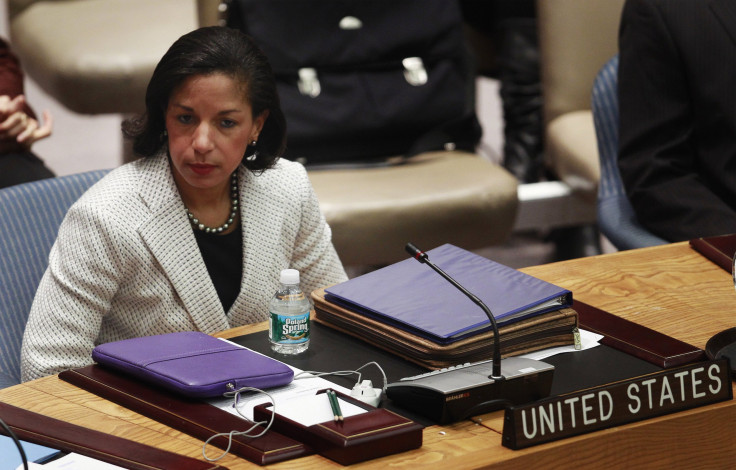Susan Rice Unlikely To Alter Obama's Foreign Policy As National Security Adviser

Susan Rice’s move from U.S. ambassador to the United Nations to President Barack Obama’s national security adviser may be a major personnel shakeup at the White House, but it is unlikely to significantly change the president’s foreign policy.
With Rice, the president is bringing on a trusted adviser who brings her own opinions and high profile to the position, experts said. But Obama’s foreign policy course has already been set, and Rice is expected to carry it out, not change it.
Rice has served in her U.N. position since 2009; her role is new but her voice is not. “In any key meeting on any big thing, she’s been there making her voice known up till now,” said Heather Hurlburt, executive director of the left-leaning National Security Network. “The idea that her personality will sort of change the policy is going to get somewhat overblown because her personality has been a key part in forming policy up 'til now.”
What Rice does bring that is different from her predecessor, Tom Donilon, is her public persona. Whereas Donilon was effective working behind the scenes, Rice necessarily brings her reputation with her -- something she effectively marshaled to get her way at the United Nations.
“What it does signal is the comfort level of a second-term president putting somebody in that has a higher public profile and a greater visibility on some issues,” Hurlburt said. “It signals Obama’s comfort with someone who is going to be a public persona in her own right, as she has been at the U.N.”
Foreign policy is expected to be a priority in Obama’s second term, and the agenda is already set. Top concerns are a peaceful exit from Afghanistan and a stable realignment of the Middle East after the Arab Spring. These are issues Obama inherited or encountered, but he also has his own priorities to carry out. The president wants to shift the United States’ focus toward Asia and the Pacific, a region with growing economic importance. Donilon spearheaded this effort until now and Rice will be charged with doing the same. Later this month, Obama will travel to Africa, where he is likely to lay out a new set of priorities for relations with the region.
“The policies up until now have had his stamp on them and there’s no reason to think that won’t continue,” Hurlburt said.
On the one hand, Obama has chosen in Rice a longtime adviser he is comfortable with to carry out his agenda. But there’s a second side to it as well, said Shawn Brimley, who served as director of strategic planning on Obama’s National Security Council from 2010 through 2012. "Susan has a track record of speaking her mind in White House meetings. [Obama] wants to surround himself with people who challenge his thinking and really push him in ways to consider all options,” said Brimley, who now serves as director of studies for the Center for a New American Security.
Still, when it comes to Obama’s agenda, “the top-line message will be: There’s going to be no dramatic shift in foreign policy priorities just because Tom and Susan swapped,” Brimley said.
© Copyright IBTimes 2024. All rights reserved.












